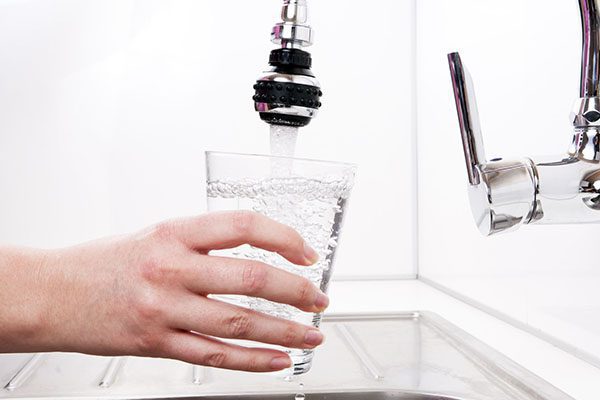Are you tired of constantly buying bottled water or worrying about the quality of the water coming out of your tap? The question arises – are water filters worth buying? This article aims to explore the benefits and considerations of investing in a water filter, helping you make an informed decision about whether it is a worthwhile purchase for you and your household.
Types of water filters
Activated carbon filters
Activated carbon filters are one of the most common types of water filters available on the market. These filters use a process called adsorption to remove impurities from water. The activated carbon in the filter attracts and traps contaminants such as chlorine, volatile organic compounds (VOCs), and sediment. This helps to improve the taste and odor of the water.
Reverse osmosis filters
Reverse osmosis filters are highly effective at removing a wide range of impurities from water. These filters use a membrane to separate contaminants from the water. The membrane allows only clean water molecules to pass through while blocking impurities such as heavy metals, fluoride, and bacteria. Reverse osmosis filters are known for their ability to produce high-quality, purified drinking water.
Ultraviolet (UV) filters
UV filters use ultraviolet light to kill bacteria, viruses, and other microorganisms in water. These filters are particularly useful in areas where water is not treated or has a high risk of contamination. UV filters are highly effective at disinfecting water and provide an added layer of protection against waterborne illnesses.
Ceramic filters
Ceramic filters are made from natural materials such as clay, diatomaceous earth, and other porous substances. These filters work by allowing water to pass through small pores while trapping contaminants. Ceramic filters are often used in conjunction with other filtration methods, such as activated carbon or silver, to provide comprehensive water purification.
Gravity filters
Gravity filters are a simple yet effective way to filter water. These filters typically consist of a container with one or more filter elements. As water passes through the filter elements, contaminants are trapped, leaving clean water to collect in a separate compartment. Gravity filters are popular for outdoor use, as they do not require electricity or complex installation.
Benefits of using water filters
Improves taste and odor
One of the primary benefits of using water filters is that they greatly improve the taste and odor of your tap water. Filters, such as activated carbon filters, remove chlorine and other chemicals that can give water an unpleasant taste and smell. This means you can enjoy fresh, clean-tasting water straight from your tap.
Removes harmful contaminants
Water filters are designed to remove a wide range of harmful contaminants that may be present in your tap water. These contaminants can include bacteria, viruses, heavy metals, pesticides, and other chemical pollutants. By removing these impurities, water filters provide cleaner and safer drinking water for you and your family.
Protection against diseases
Drinking contaminated water can lead to various waterborne diseases, such as diarrhea, cholera, and typhoid. By using water filters, you can significantly reduce the risk of these diseases. Filters like UV filters are particularly effective at killing harmful microorganisms in water, providing an additional layer of protection.
Saves money compared to bottled water
Investing in a water filter can save you a significant amount of money in the long run, especially if you currently rely on bottled water. Bottled water can be expensive, and the costs add up over time. By using a water filter, you can have access to clean and safe drinking water without the recurring expense of buying bottled water.
Environmentally friendly solution
Using a water filter is not only beneficial for your health and budget but also for the environment. By choosing to filter your tap water instead of relying on bottled water, you can significantly reduce plastic waste. Plastic bottles contribute to pollution, and their production consumes valuable resources. Switching to a water filter is a more sustainable and eco-friendly choice.
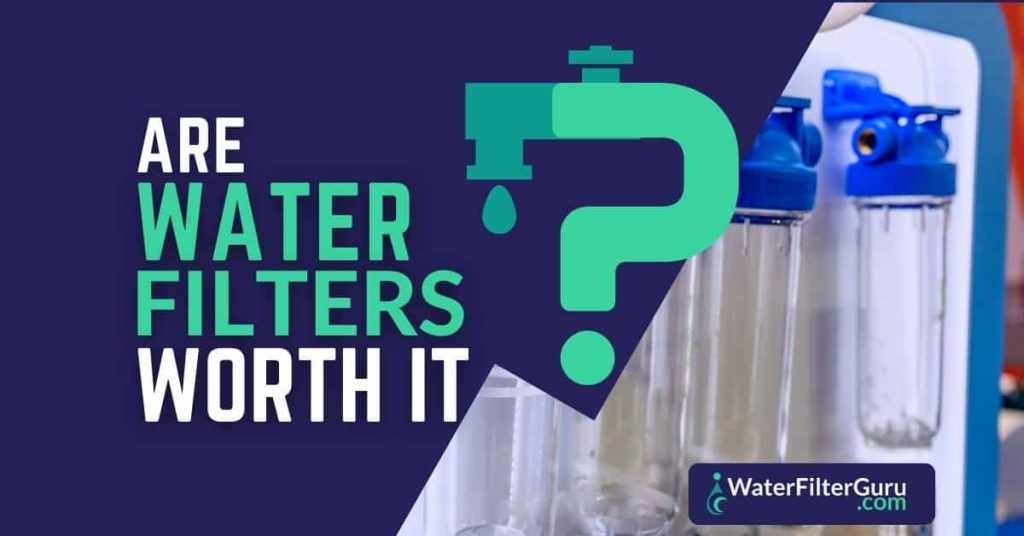

This image is property of waterfilterguru.com.
Considerations when buying water filters
Contaminant removal capabilities
When choosing a water filter, it is essential to consider its contaminant removal capabilities. Different filters target various contaminants, so it’s essential to select one that addresses the specific impurities present in your water. Look for filters that have been independently tested and certified to ensure their effectiveness.
Flow rate and filter lifespan
Consider the flow rate and filter lifespan when purchasing a water filter. The flow rate refers to how much water the filter can process per minute. A higher flow rate is desirable, as it allows for faster filtration. Additionally, check the filter’s lifespan to ensure it can effectively purify your water for an extended period before requiring replacement.
Maintenance requirements
Water filters require regular maintenance to ensure their optimal performance. Consider the maintenance requirements of the filter you are considering, such as filter replacements, cleaning, and sanitization. Some filters may need more frequent maintenance than others, so choose one that fits your schedule and lifestyle.
Cost of filters and replacement parts
The cost of the filter itself and any replacement parts should be taken into account when buying a water filter. Compare the prices of different filters, including the cost of replacement cartridges or filters, to determine the long-term cost of owning and maintaining the filter.
Space and installation requirements
Evaluate the space available in your home and the installation requirements of the water filter. Some filters, such as faucet-mounted filters or pitcher filters, require minimal space and can be easily installed without professional help. Others, like under-sink filters or whole-house filters, may require more significant space and professional installation.
Are water filters necessary for everyone?
Areas with poor water quality
Water filters are particularly necessary for people living in areas with poor water quality. Municipal water treatment may not effectively remove all contaminants, leaving the water supply at risk of contamination. By using a water filter, you can ensure that the water you consume is clean and safe, even if the quality of the tap water is questionable.
People with compromised immune systems
Individuals with compromised immune systems, such as those with HIV/AIDS or undergoing chemotherapy, are more susceptible to infections and illnesses. Drinking contaminated water can be especially dangerous for them. Water filters, particularly those that remove bacteria and viruses, provide an additional layer of protection and peace of mind.
Individuals with specific health concerns
Certain health concerns may make it necessary for individuals to use water filters. For example, people with kidney problems or those who require a low-sodium diet may benefit from a reverse osmosis filter, as it removes minerals and salts from the water. Consulting with a healthcare professional can help determine if a water filter is necessary to address specific health concerns.
Travelers and outdoor enthusiasts
Water filters are essential for travelers and outdoor enthusiasts who may not always have access to clean drinking water. Portable filters, such as gravity filters or water disinfection tablets, can be used to purify water from natural sources like rivers and streams. This ensures that the water is safe to drink and helps prevent waterborne illnesses during outdoor adventures.
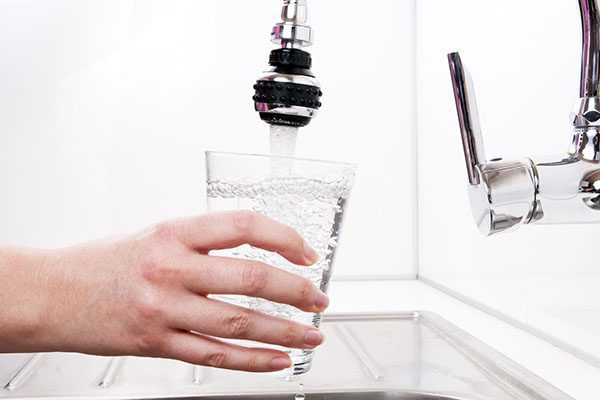

This image is property of cdn.frontdoorhome.com.
Common misconceptions about water filters
All tap water is the same
One common misconception is that all tap water is the same and equally safe to drink. However, the quality of tap water can vary significantly depending on the water source, treatment methods, and potential contamination. Water filters play a crucial role in ensuring the safety and quality of tap water.
Bottled water is always safer
While bottled water is often perceived as a safer alternative to tap water, it is not always the case. Bottled water may still contain impurities and contaminants, and its quality standards are not as strictly regulated as tap water. By using a water filter, you can have more control over the quality of the water you drink, without relying solely on bottled water.
Boiling tap water makes it safe
Boiling tap water is an effective method to kill many microorganisms, but it does not remove chemical contaminants or sediment. Additionally, boiling water requires time and consumes energy. Water filters, on the other hand, offer a comprehensive solution by removing a wide range of impurities, including harmful microorganisms.
Water filters remove beneficial minerals
It is a common misconception that water filters remove all minerals from the water, including beneficial ones. While some filters, like reverse osmosis filters, may remove minerals, there are also filters that preserve essential minerals. It is essential to choose a water filter that meets your specific needs and preserves the desired mineral content in the water.
All water filters are created equal
Not all water filters are created equal, and their performance can vary significantly. It is important to research and choose a filter that has been independently tested and certified by reputable organizations. Look for filters that meet industry standards and have a proven track record of effectively removing contaminants.
Factors to consider before purchasing a water filter
Water source and quality
Understanding the source and quality of your water is crucial when selecting a water filter. The level of contamination and specific impurities present in your water will determine the type of filter you need. Conducting a water quality test or consulting with a local water authority can provide valuable insights.
Specific contaminants of concern
Identify the contaminants that are of particular concern to you. Different filters specialize in removing specific impurities, such as chlorine, heavy metals, or pesticides. By knowing the contaminants of concern, you can choose a filter that effectively targets and removes them from your water.
Budget and long-term cost
Consider your budget and the long-term cost of owning and maintaining a water filter. While some filters may have a higher initial cost, they may offer better performance and longer-lasting filters, ultimately providing better value for your money. Factor in the cost of replacement cartridges or filters when calculating the long-term cost.
Available space and installation options
Evaluate the space available in your home and the installation options for different filters. Some filters, like under-sink filters or whole-house filters, require professional installation and adequate space. Others, such as countertop filters or pitcher filters, are more compact and can be easily installed without professional help.
Quality and reliability of the filter
Lastly, consider the quality and reliability of the water filter you are considering. Look for filters that have been independently tested and certified for their performance and contaminant removal capabilities. Read reviews and seek recommendations to ensure that you choose a filter from a reputable manufacturer.
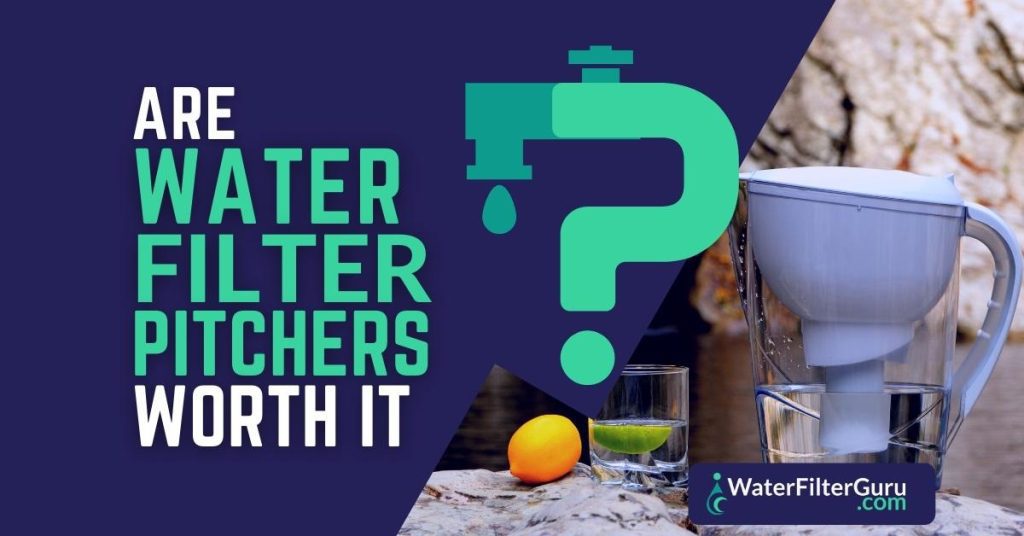

This image is property of waterfilterguru.com.
Types of water filters best-suited for different purposes
Faucet-mounted filters
Faucet-mounted filters are a popular choice due to their ease of installation and convenience. These filters attach directly to the faucet, allowing for instant access to filtered water. Faucet-mounted filters are often equipped with activated carbon or other filter media to improve taste and remove impurities.
Countertop filters
Countertop filters are versatile and ideal for those who want a portable and easily accessible filtration system. These filters sit on the countertop and are connected directly to the faucet. Countertop filters often utilize activated carbon, ceramic, or reverse osmosis technology to provide effective purification.
Under-sink filters
Under-sink filters are installed beneath the sink and are connected directly to the water supply line. These filters offer a discreet and space-saving filtration solution. Under-sink filters typically use multiple stages of filtration, including activated carbon and sediment filters, to provide comprehensive purification.
Pitcher filters
Pitcher filters are a convenient option for those who prefer an affordable and portable filtration option. These filters use activated carbon or charcoal to improve the taste and odor of the water. Simply fill the pitcher with tap water, and the filter will remove impurities as you pour.
Whole-house filters
Whole-house filters provide filtration for the entire household’s water supply. These filters are typically installed at the point of entry, where water enters the house. Whole-house filters use multiple stages of filtration to remove impurities and provide clean water throughout the entire home.
Water filter maintenance and replacement
Replacing filter cartridges
Regularly replacing filter cartridges is essential to maintain the effectiveness of your water filter. Follow the manufacturer’s instructions for the recommended replacement schedule. Most filters require cartridge replacement every few months or after a certain amount of water has been filtered. By replacing cartridges on time, you ensure the quality of your filtered water.
Cleaning and sanitizing the filter
Cleaning and sanitizing your water filter are crucial to prevent the growth of bacteria and maintain optimal performance. Refer to the manufacturer’s guidelines for specific cleaning instructions. Generally, filters can be cleaned by rinsing with water or by soaking in a cleaning solution. Regular sanitization helps ensure the safety and cleanliness of your filtered water.
Regular maintenance tasks
In addition to cartridge replacement and cleaning, regular maintenance tasks should be performed to keep your water filter in good working order. This may include checking for leaks, inspecting fittings and connections, and replacing any worn or damaged parts. By staying proactive with maintenance, you can prolong the lifespan and effectiveness of your filter.
Monitoring filter performance
It is important to monitor the performance of your water filter to ensure that it continues to effectively remove contaminants. Pay attention to any changes in water taste, odor, or appearance. If you notice a decline in filter performance, it may be a sign that the filter needs replacement or maintenance.
Ensuring proper storage and handling
Proper storage and handling of your water filter are necessary to prevent contamination and maintain its effectiveness. Follow the manufacturer’s instructions for proper storage, especially if the filter is being stored for an extended period. Additionally, handle the filter with clean hands to avoid introducing bacteria or other impurities.
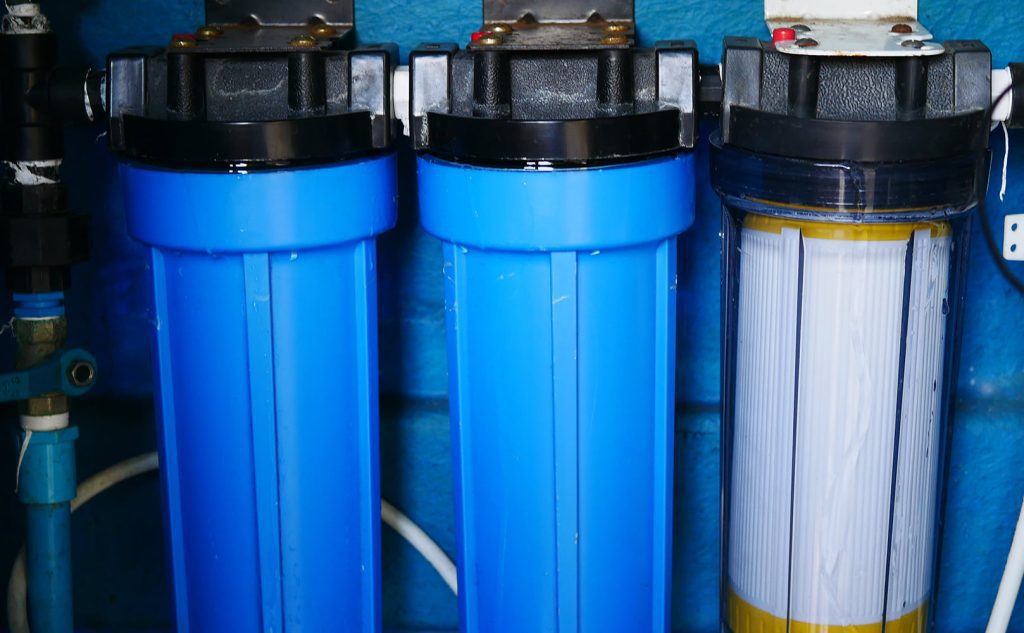

This image is property of www.best-osmosis-systems.com.
Alternatives to water filters
Boiling water
Boiling water is a traditional method of purifying water and killing harmful microorganisms. Boiling water for at least one minute can help ensure its safety. However, boiling does not remove chemicals or sediment from water, so it may not be effective against all impurities.
Using water disinfection tablets
Water disinfection tablets are commonly used by travelers and outdoor enthusiasts for quick and convenient water purification. These tablets release chemicals, such as chlorine or iodine, into the water, effectively killing bacteria and other pathogens. However, they may not remove chemical contaminants or improve taste.
Distillation
Distillation is a method of water purification that involves boiling water and collecting the condensed vapor. This process effectively removes impurities, including minerals, chemicals, and microorganisms. However, distillation can be time-consuming and requires specialized equipment.
Bottled water
Bottled water is a readily available alternative to tap water. However, it is important to note that not all bottled water is created equal, and its quality may vary. Additionally, bottled water contributes to plastic waste and can be more expensive in the long run compared to using a water filter.
Water services and delivery subscriptions
Water services and delivery subscriptions offer the convenience of having clean drinking water delivered to your doorstep. These services often provide filtered or purified water in reusable containers. While this option eliminates the need for a water filter, it may come with recurring costs and the inconvenience of scheduling deliveries.
Conclusion
Water filters offer numerous benefits and are worth considering for anyone looking to improve the quality and safety of their drinking water. Whether you live in an area with poor water quality, have specific health concerns, or simply want to save money and reduce environmental waste, a water filter can provide a reliable and sustainable solution. By understanding the different types of water filters available, considering your specific needs and requirements, and properly maintaining your chosen filter, you can enjoy clean and refreshing water straight from your tap. Remember to research and choose a reputable filter that meets industry standards to ensure the best performance and contaminant removal capabilities.
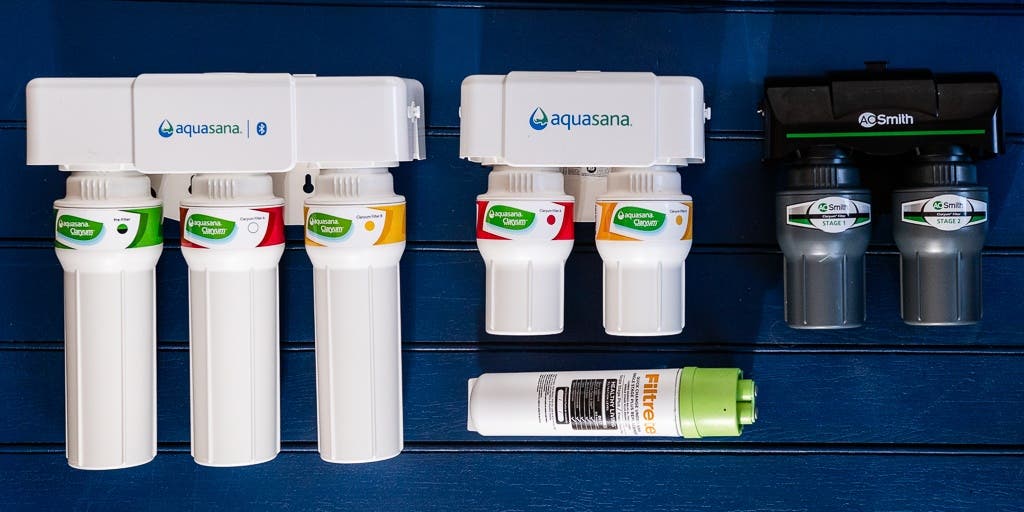

This image is property of cdn.thewirecutter.com.

